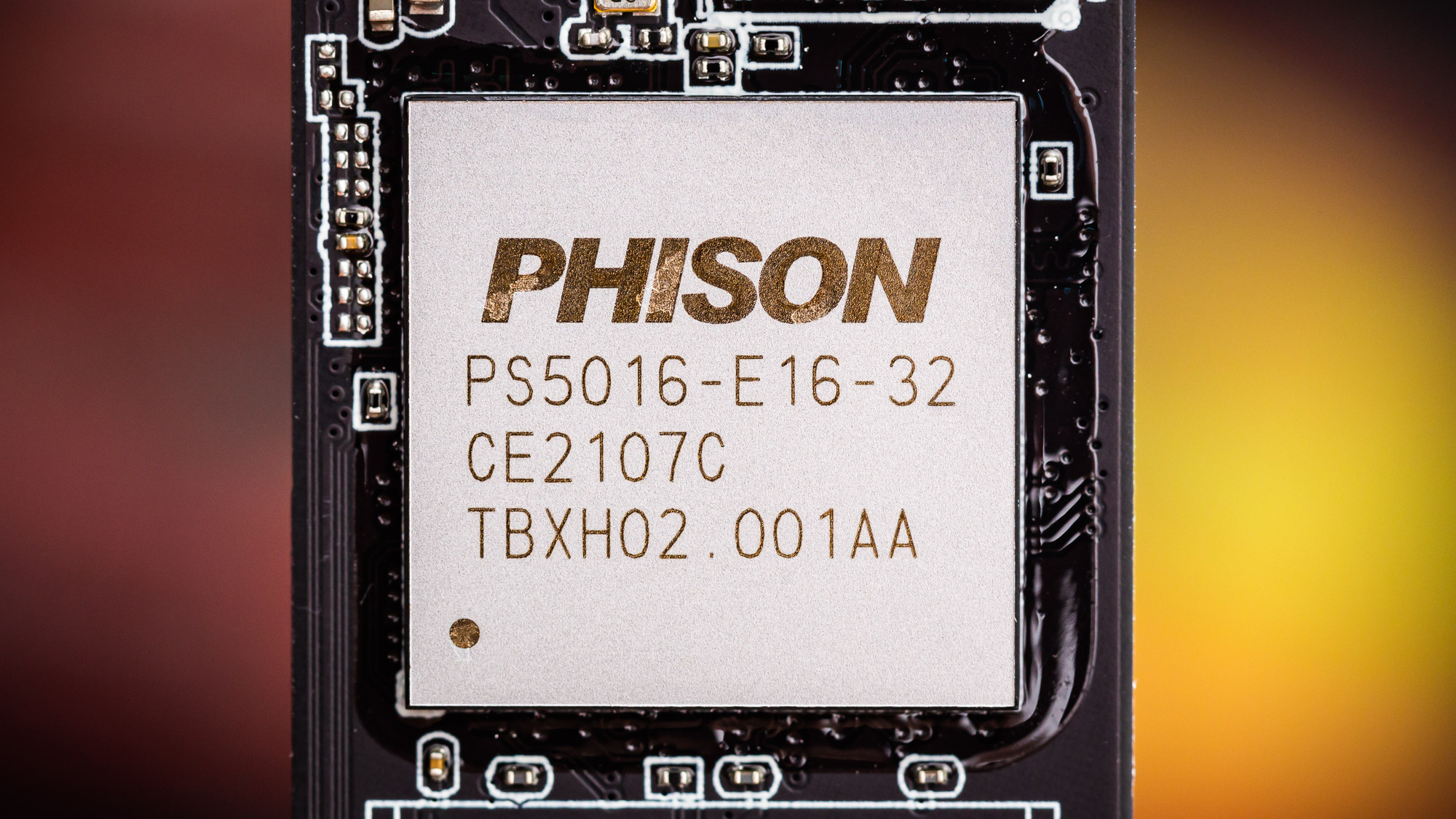Tom's Hardware Verdict
Built on last-generation hardware, the MSI Spatium M470 delivers faster-than-PCIe 3.0 performance and high endurance ratings at a competitive price.
Pros
- +
+ PCIe 3.0-beating performance
- +
+ Reasonable prices
- +
+ Opal-compliant AES hardware encryption
- +
+ 5-year warranty and high endurance ratings
Cons
- -
Small SLC cache
- -
Runs hot during heavy workloads
Why you can trust Tom's Hardware
The MSI Spatium M470 is a well-rounded M.2 NVMe SSD that delivers PCIe 4.0 performance of up to 5/4.4 GBps of sequential read/write throughput paired with very competitive endurance ratings, OPAL compliant encryption, and affordable pricing. It lacks the flashy appeal of SSDs that come with sleek heatsinks but competes well against the best SSDs, presenting a solid value option that lands between the best PCIe 3.0 SSDs and the newest flagship PCIe 4.0 SSDs.
Like the recently-reviewed Spatium M480, MSI’s M470 delivers PCie 4.0 performance, but it isn’t quite as fast. Equipped with Phison’s PS5016-E16 SSD controller and BiCS4 TLC flash, MSI’s Spatium M470 comes with last-gen components but is still faster than your average PCIe 3.0 NVMe SSD in most workloads. With ample performance and endurance for demanding tasks, the Spatium M470 is a solid addition to any build, given the price is right at your time of purchase.
Specifications
| Product | 1TB | 2TB |
|---|---|---|
| Pricing | $129.99 | $299.99 |
| Capacity (User / Raw) | 1000GB / 1024GB | 2000GB / 2048GB |
| Form Factor | M.2 2280 | M.2 2280 |
| Interface / Protocol | PCIe 4.0 x4 / NVMe 1.3 | PCIe 4.0 x4 / NVMe 1.3 |
| Controller | Phison PS5016-E16 | Phison PS5016-E16 |
| DRAM | DDR4 | DDR4 |
| Memory | BiCS4 96L TLC | BiCS4 96L TLC |
| Sequential Read | 5,000 MBps | 5,000 MBps |
| Sequential Write | 4,400 MBps | 4,400 MBps |
| Random Read | 600,000 IOPS | 600,000 IOPS |
| Random Write | 600,000 IOPS | 600,000 IOPS |
| Security | AES 256-bit encryption | AES 256-bit encryption |
| Endurance (TBW) | 1,600 TB | 3,300 TB |
| Part Number | S78-440Q090-P83 | S78-440Q090-P83 |
| Warranty | 5-Years | 5-Years |
The MSI Spatium M470 is available in 1 TB and 2 TB capacities. Each is reasonably priced, but the 1 TB model is currently the best value at just $129.99. Listed at $300, the 2 TB model has a slightly higher price per gigabyte.
MSI rates the M470 for sequential speeds of up to 5.0/4.4GBps read/write, and both capacities at up to 600,000 random read/write IOPS. This performance is partly thanks to the M470's unique SLC cache implementation that differs from many of the earlier E16 and BiCS4-equipped SSDs. Unlike those, which came with large dynamic caches, the SLC cache on the M470 is very small but is also quick to recover.
The Spatium M470 also comes backed with a five-year warranty and high endurance ratings. With a solid 9.9% of its flash allocated to overprovisioning and leveraging Phison's fourth-gen LDPC engine, the 1 TB model is rated to endure up to 1,600TB of writes while the 2 TB model can absorb up to 3,300TB.
MSI's Spatium M470 supports Trim, end-to-end data path protection, SMART data reporting capability, and for those working with more sensitive data, the drive has OPAL 2.0-compliant AES 256-bit encryption functionality. It can also be quickly and easily secure erased by your motherboard's UEFI tool or other means. MSI's SSDs currently lack software support, but a future update of MSI Center, the company's go-to software utility, will enable monitoring capability.
A Closer Look
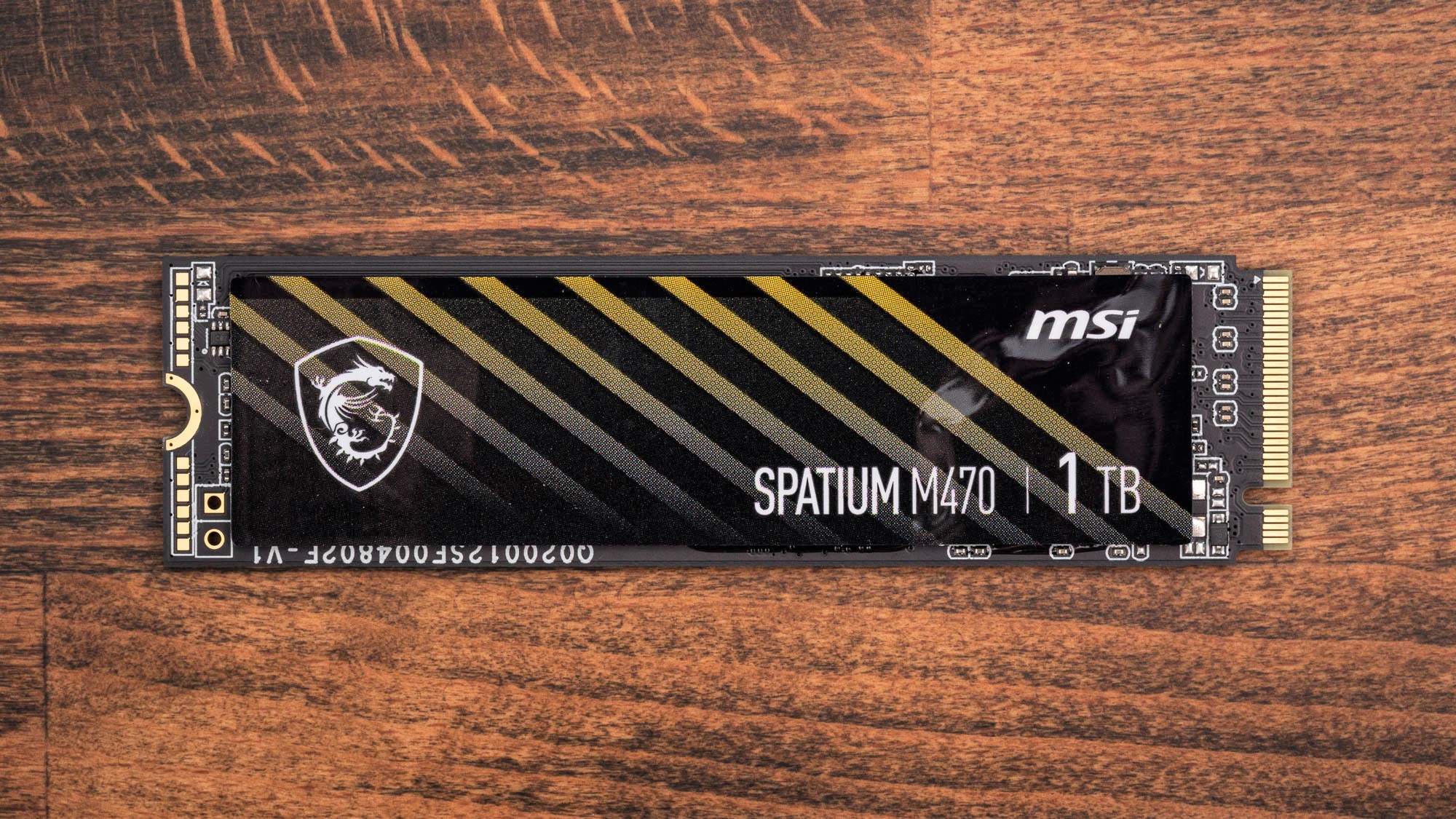
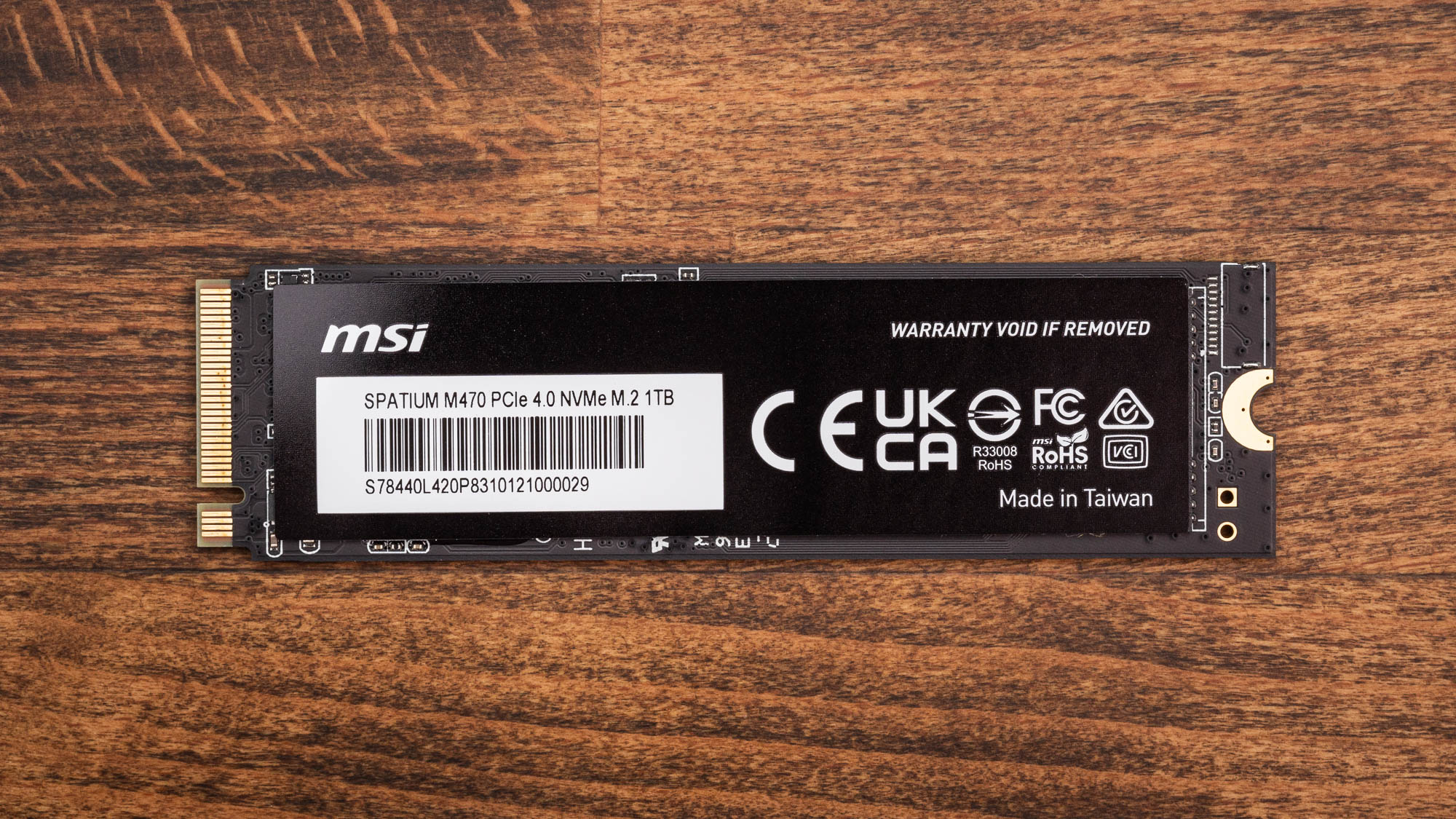
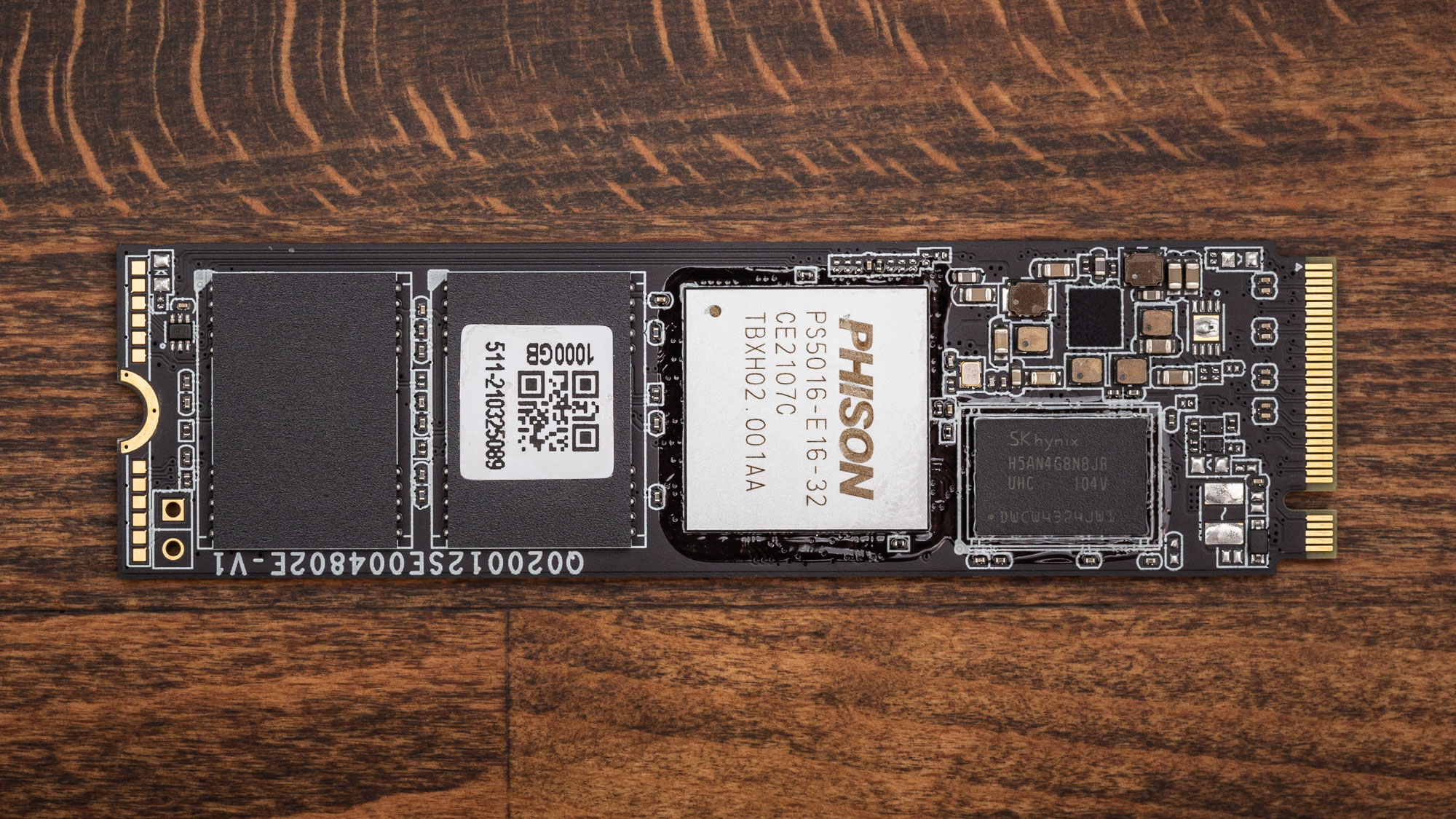
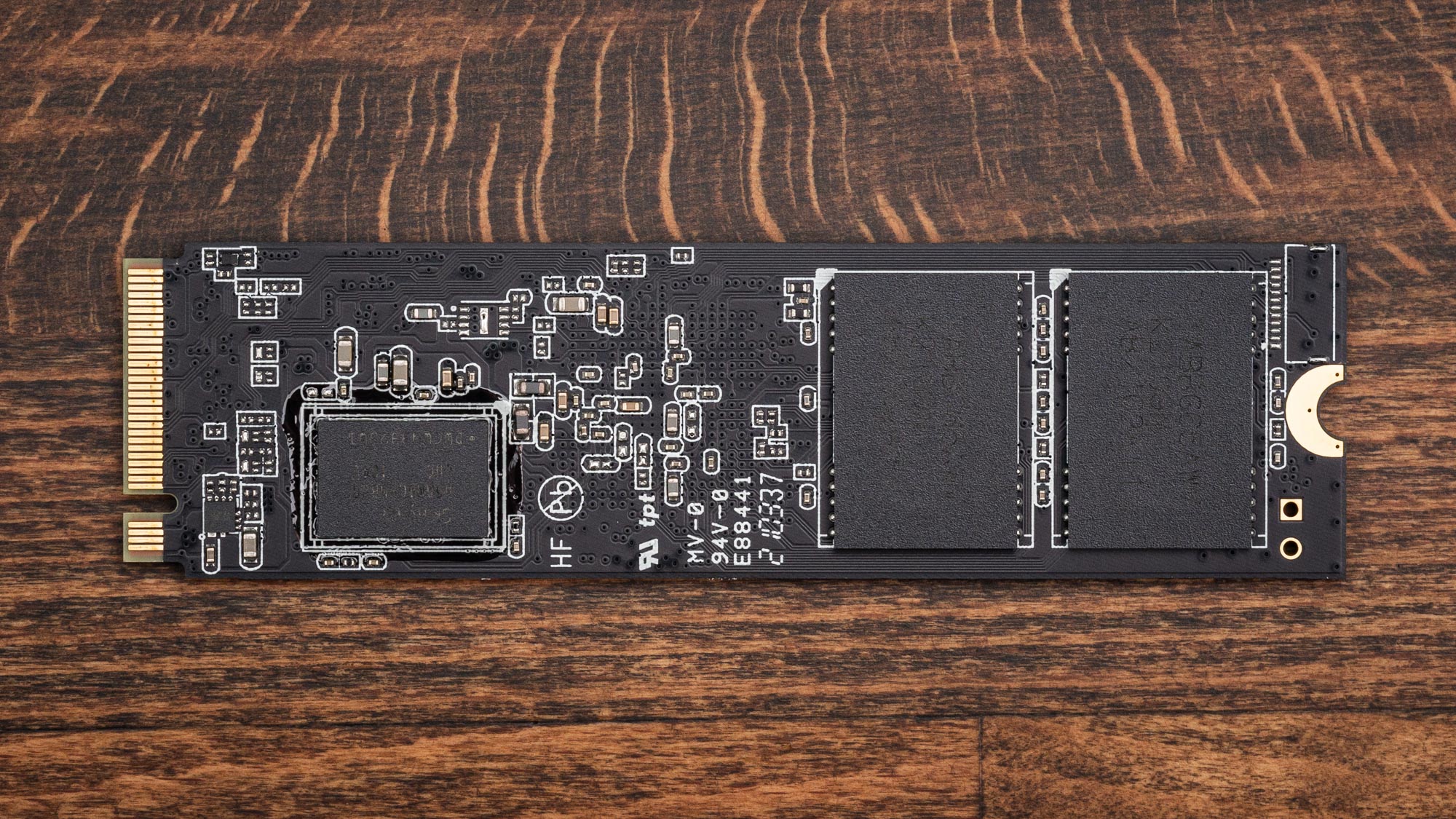
The MSI Spatium M470 comes in an M.2 2280 form factor in both 1TB and 2TB capacities, which will deter most Ultrabook users looking for an upgrade. However, it is perfectly fine for most desktop applications. Aesthetically, the M470’s design is great. The label is attractively designed, and the black PCB is a nice touch. As we like to see, all of the compliance information and internal use SKUs are listed on the backside, out of sight.
Get Tom's Hardware's best news and in-depth reviews, straight to your inbox.
The SSD sports Phison’s PS5016-E16 SSD controller, which is essentially a spiffed-up version of the E12. Its eight-channel quad-core controller leverages Cortex R5 cores built on a 28nm process. That said, it can and will gulp down power and run hot without proper cooling.
To help ensure data integrity and device reliability, this controller employs end-to-end data path protection along with features like Active State Power Management (ASPM), Autonomous Power State Transition (APST), and thermal throttling support engages if the SSD has inadequate cooling.
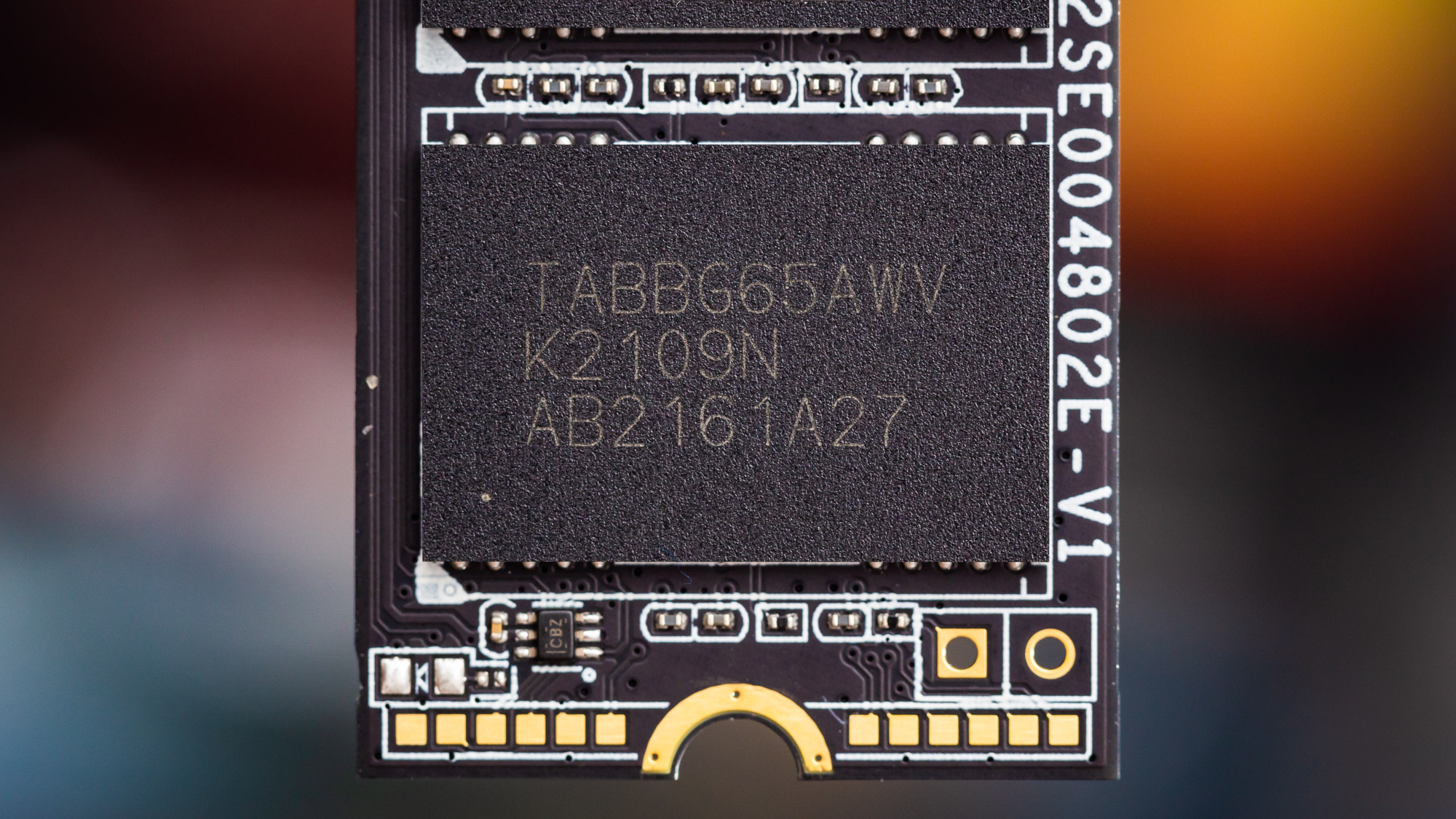
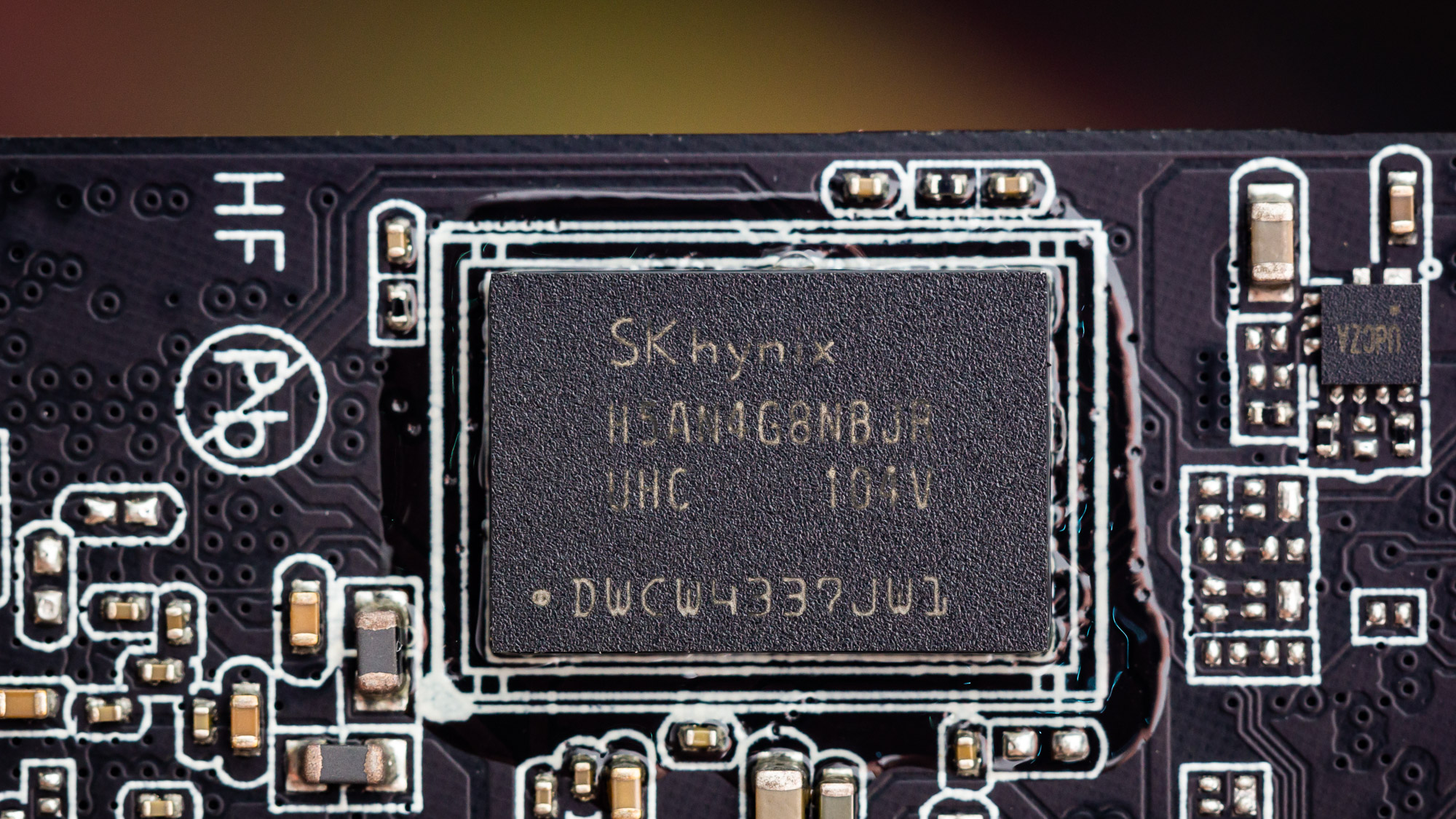
The controller leverages a DRAM cache; our sample has two 4Gb SK hynix DDR4 DRAM ICs. There are four NAND packages on our 1TB sample, each containing eight 256Gb dies of BiCS4 96L TLC. Each features a dual-plane architecture for higher levels of interleaving, increasing performance over the single plane designs found with older flash. However, this is still only half the number of planes on the latest BiCS5 112-layer and BiCS 6 162-layer flash.
MORE: Best SSDs
MORE: How We Test HDDs And SSDs
MORE: All SSD Content

Sean is a Contributing Editor at Tom’s Hardware US, covering storage hardware.
-
Co BIY Is there a component or cost reason 2TB SSDs are more than 2x the cost of 1TB SSDs?Reply
It seems like from a component perspective that it should be cheaper per GB.
Still looking for someone to stretch out with a 3TB Drive. They would have a whole class to themselves. -
Shadowclash10 You should have mentioned the $65-$75 deal for the 1TB M470 during Black Friday, on Newegg. I get that deals/one-off prices aren't meant to be part of reviews (obviously) but that was widely considered to be the best Black Friday deal in the PC space this year, it was incredibly popular, etc etc.Reply
